Want to Learn More?
If you share the belief that one person can make a difference, we see you learning to put your compassion into action in the social work program at Cedar Crest College.
Our interconnected world is faced with poverty, oppression, and discrimination that need to be countered by compassionate, dedicated, and educated professionals. There is a critical need for people like you who are dedicated to community service and bringing about social change.
Throughout your education, you will experience a wide range of valuable real-world experiences at local organizations including a homeless shelter, a shelter for victims of domestic violence, adoption agencies, mental health, foster care, child and adolescent behavioral health centers, and a full-year senior-level field education experience—all of which makes you an ideal candidate for both graduate schools and a wide variety of professional positions.
The Cedar Crest College Advantage:
Accreditation
Our social work program is accredited by the Council on Social Work Education and is one of the oldest accredited B.S.W. programs in the nation. Students who complete the social work major here will be prepared to begin entry into a social work practice and are usually able to apply several of their undergraduate credits toward a graduate degree in social work.
Experienced faculty
All of our professors are licensed social workers with relevant professional experience. Our faculty members closely monitor each student’s academic progress and participation in various field experiences.
Valuable field experiences
Our program is highly regarded by the social services community in the Lehigh Valley. As a senior, you will work with a faculty mentor to select a local agency where you will participate in a field experience for one full year. This experience frequently results in students receiving job offers before graduation.
Opportunities to specialize
As a social work major, you may dual-major in another field such as psychology or criminal justice. Or you may pursue an add-on certificate in child welfare. These options enable you to explore a specialty during your bachelor’s studies to better prepare you for graduate school and/or future employment.
Mission Statement
The Social Work Program at Cedar Crest College is dedicated to the provision of the highest quality educational preparation of students for entry into beginning generalist social work practice that maximizes the welfare of individuals, families, groups, organizations, and communities in local, national, and global settings. Consistent with the mission of the College, the Social Work Program seeks to provide students with a professional education grounded in a liberal arts perspective with a particular focus on the holistic development of students to engage effectively as leaders in a global community. The Social Work Program is philosophically guided by a generalist approach that is informed by the person-in-environment framework as well as the knowledge, skills, values, the ethical principles of the profession grounded in scientific inquiry as well as by the CSWE core competencies and related behaviors. The Social Work Program is also devoted to preparing professionals who have a lifetime commitment to service that values diversity, upholds human rights, advocates for social, economic, and environmental justice, and advances the quality of life for all people.
Dive A Little Deeper
Upcoming Admissions Events
Cooperative Agreements
Cedar Crest College collaborates with several academic institutions to provide our students with innovative pathways that help them succeed in their chosen fields.

How To Apply
Ready to apply as an undergraduate student?
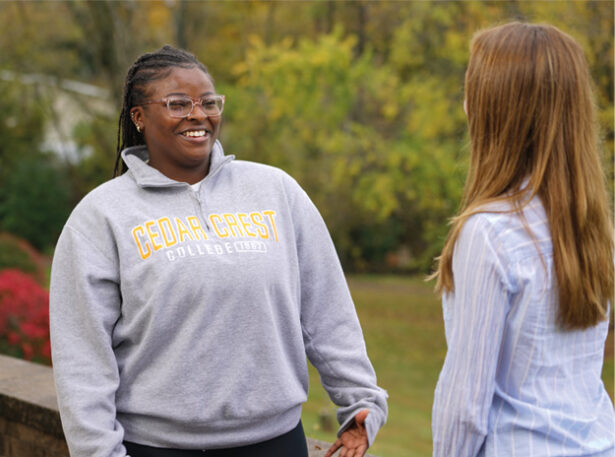
Accreditation
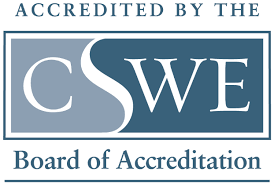
The Cedar Crest College social work program is accredited by the Council on Social Work Education.
Faculty & Staff
Who’s teaching you is as important as the curriculum you choose.
Let’s put a face to some of the names you’ll be seeing on the course listings!
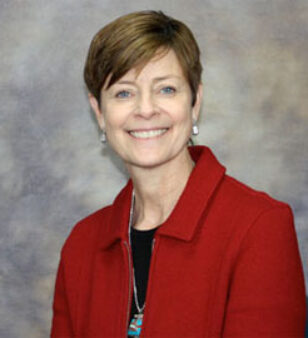
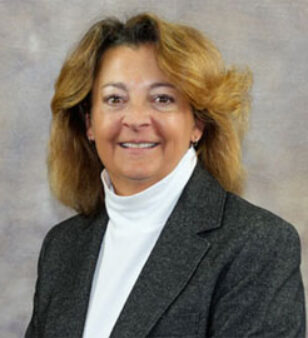
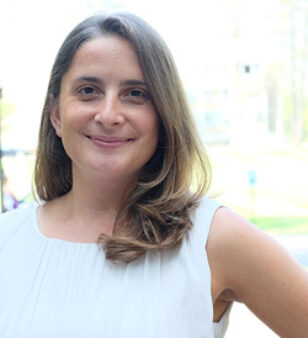
- School of Adult and Graduate Education
- sage@cedarcrest.edu
- P: 610-740-3770
- Traditional Admissions
- admissions@cedarcrest.edu
- P: 800-360-1222
- F: 610-740-3780